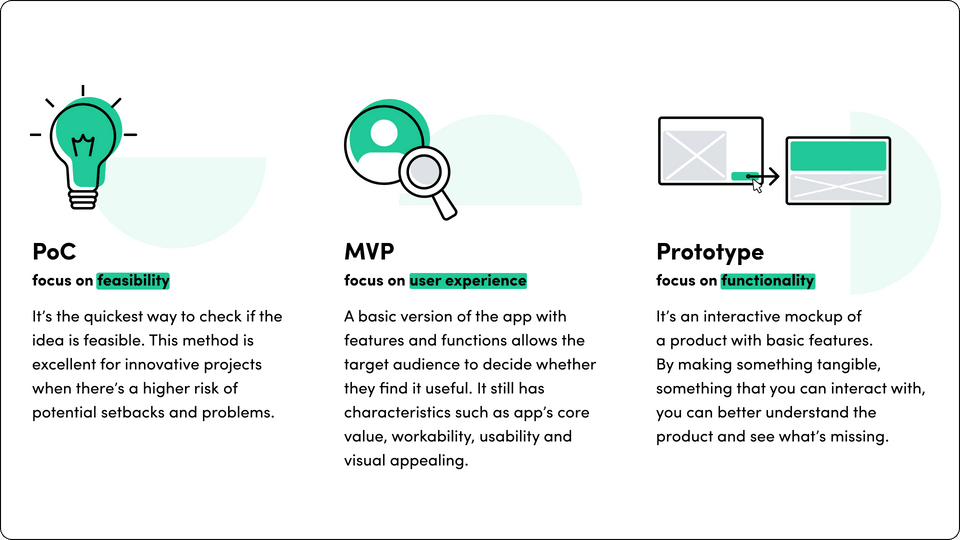

Blog

Why size matters when finding a software development company?
Selecting a software development company that will turn your idea into reality is a difficult task. And in the past decade, it became even more challenging. With so many software development services on the market, it can get confusing. Plus, there are so many aspects that you have to consider – starting from the client’s requirements, project scope, technical capabilities of the team to who owns source code. It’s madness. But, let’s all agree -once you’ve got the right team by your side, you’re one step closer to project success.
After the initial research, which we described in detail in one of the previous articles, it’s time to get a little deeper. In 3 steps to choosing a software development company, you can find some tips along with questions to ask your potential software vendor. And this article is an extension of the previous one to help you come to a decision.
But for now, let’s focus on the subject of this blog post: Does size matter when picking your software development company? We’re going to talk about the pros and cons, the importance of choice and lastly, a bit of our experience – why we prefer to be a smaller software development firm.
Smaller but fast-growing companies vs big corporations
Let’s compare and see which company size and type are more suitable for your business and software project. This comparison should already tell you which one is a better option. We’re going to make this distinction in the form of questions, and as we go on, you’ll get more and more clear about your choice.
What is your budget?
Let’s start from resources. In a large company, due to its size and reputation, the process may be rather expensive as opposed to smaller software development companies. Small organizations are mostly agile, which means they are more flexible. For example, they can offer you building MVP first and see if it’ll be successful.
Minimum Viable Product is not only a cost-effective solution, but it’s also a great way to check the customer needs. Also, as you can see, it focuses on the core value of the digital product.
How much do you want to be involved in the process?
It’s the case of your role in the software projects. Small companies like to involve the originator of the idea in the custom software development process so that you’ll be a part of the team, but of course, no pressure. It all depends on how much time do you have.
However, this cooperation will give you a chance to meet the project manager along with the development team and take part in every stage. In this way, you can be sure that you’ll get the product that you want.
In most projects of big software development companies, it’s more of the “you order, we deliver” kind of policy. It’s a more artificial procedure in which there is less possibility to control or manage the project. Hence, the decision-making process is more restrictive. But if you want to have a job done and don’t really care about how it’s done, then perhaps it’s something for you.
When is the deadline for your project?
In other words – how fast do you want to release your software product? Sure, software engineering is time-consuming, but it doesn’t mean it can’t be sped up.
In smaller software companies, it’s a matter of their responsiveness and what software development pricing model they use – Fixed Price or Time and Material? In big corporations, the date is fixed, but the process may be longer due to documentation or plans.
Learn more about software development contracts here.
What is your communication style?
As mentioned before, in the software industry or any industry really, large companies have a more structured system of doing things. The same goes for communication in the project. For this reason, it’s rather unlikely that you’re going to meet the team or talk to the CEO. Even though they probably have offices in many countries, which, in theory, should facilitate communication. However, in most cases, it’s all done by an intermediary. It’s one of the company cultural differences.
That’s why, if you want transparency, smaller software companies are a better option here. They genuinely care about your product, and there’s more flexibility in how they interact with you through various means of communication, such as Slack or Google Meet. This, in turn, builds trust and sets a foundation for a long-term relationship.
How much do you care about the software company’s reputation?
It’s evident that bigger software vendors have established status on the market, and they want to live up to that. But smaller but fast-growing companies also do their best. For them, the mission is more than just a statement. That’s why they tend to care more about their customer service. This transforms to getting to know the business and client face-to-face, more customized approach. You’re not a client but rather a business partner.
What about the team?
Large companies tend to have clearly defined job positions which prevents them from the situation when someone has too many things to do. Each person has a specific task to do in a project, while people in smaller firms often wear more hats. They have more job functions which allow them to develop their abilities and become specialists in many fields. Thus, they’re more valuable. On top of that, they know each other well. Therefore, they better cooperate, have a shared understanding, which transforms their work on a project. Since they know each different workflow, they can do their job more effectively and come up with a solution that will bring more value to the final product.


Our choice
At Gorrion, we’re client-focused. Through research and product discovery workshops, we want to know as much as possible to offer you solutions for the product that will help your business. Moreover, our team of experts is fully engaged in every step of the custom software development process.
During the collaboration, you’re going to meet the team and be in frequent contact with them. That means getting feedback on the progress as well as a chance to take part in creating the product, which makes the collaboration a lot more effective and rewarding. Thanks to the company culture and Agile project management, we’re flexible and responsive to any changes. In the end, our goal is your product’s success.
We ensure that you’ll get the one that will fit the market needs and bring value to its target users. And that’s also the reason why we don’t want to be a large company. We’re committed to the customization and transparency of the process. We thrive on having long-term relationships with our clients and on making them last. Are you interested in what our clients say about us? Check out our Clutch profile.
Conclusion on the sizes of software development companies
As you can see, the choice of a software company isn’t the easiest, but it’s not impossible, and I hope that this article helped you with it. However, if you’re still uncertain about the process of outsourcing software development, read our ebook or simply book a meeting with us.
Editor’s note: We’ve originally published this post in March 2021 and updated it for comprehensiveness.


Have a project in mind?
Let’s meet - book a free consultation and we’ll get back to you within 24 hrs.



